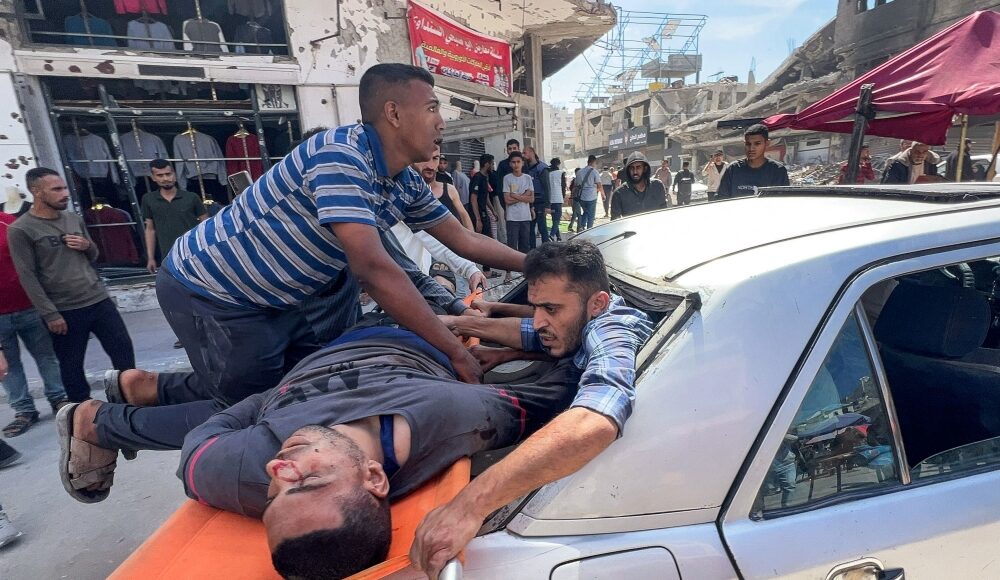MAY 8 — I refer to Phar Kim Beng’s “Why third-party mediation in South Asia is not bias — but urgent diplomacy”.
Perhaps Indian journalist Palki Sharma should look at India’s official position on Gaza where Minister of External Affairs (MEA) in a parliamentary answer said:
“India has strongly condemned the terror attacks on Israel on 7 October 2023 and also the loss of civilian lives in the ongoing Israel-Hamas conflict. India has called for ceasefire and sustained humanitarian assistance to the people of Gaza. During the ongoing conflict, India has provided 70 tonnes of humanitarian aid including 16.5 tonnes of medicines and medical supplies. We have also called for the release of remaining hostages.
“We remain concerned at the deteriorating security situation and have called for restraint and de-escalation and emphasised a peaceful resolution of the conflict through dialogue and diplomacy.
Palestinians carry a victim after an Israeli airstrike, in Gaza City, May 7, 2025. According to the author, while India has condemned Hamas’s attack on October 7, 2023, and is concerned at the situation in Gaza, it has not condemned Israel’s genocidal attack on Gaza. — Reuters pic
“India’s policy towards Palestine has been long standing and we have always supported a negotiated two State solution, towards establishment of a sovereign, independent and viable State of Palestine within secure and recognised borders, living side by side in peace with Israel.”
While India has condemned Hamas’s attack on October 7, 2023, and is concerned at the situation in Gaza, it has not condemned Israel’s genocidal attack on Gaza. According to progressive groups in India, the country has maintained a very ambiguous stance on the Israeli war in Gaza in the UN too. India’s failure to take a principled position on Israel’s criminal behavior has been “shameful” and “unprecedented”.
One may recall Prime Minister Narendra Modi’s initial response to Hamas’ attacks where Modi immediately tweeted: “Deeply shocked by the news of terrorist attacks in Israel. Our thoughts and prayers are with the innocent victims and their families. We stand in solidarity with Israel at this difficult hour.”
Four days later, he tweeted: “People of India stand firmly with Israel in this difficult hour. India strongly and unequivocally condemns terrorism in all its forms and manifestations.”
The Indian prime minister’s tweet has been largely seen as a categorical tilt toward Israel.
India’s official position on the Gaza conflict is said as reflecting its broader aspirations on the global stage. In October last year, Ranjith Rebello wrote in the Diplomatist:
“As a rising power and a member of the G20, India seeks to play a more prominent role in international diplomacy. Its approach to the Gaza conflict is consistent with its broader foreign policy objectives, which include promoting dialogue, conflict resolution, and respect for international law. India’s emphasis on a two-state solution aligns with its advocacy for a rules-based international order and its support for multilateralism.”
If such is India’s approach to the situation in Gaza — diplomacy, dialogue, respect for international law — why the accusation of Malaysia “not being a neutral mediator” in the ongoing tensions between India and Pakistan?
* This is the personal opinion of the writer or publication and does not necessarily represent the views of Malay Mail.





